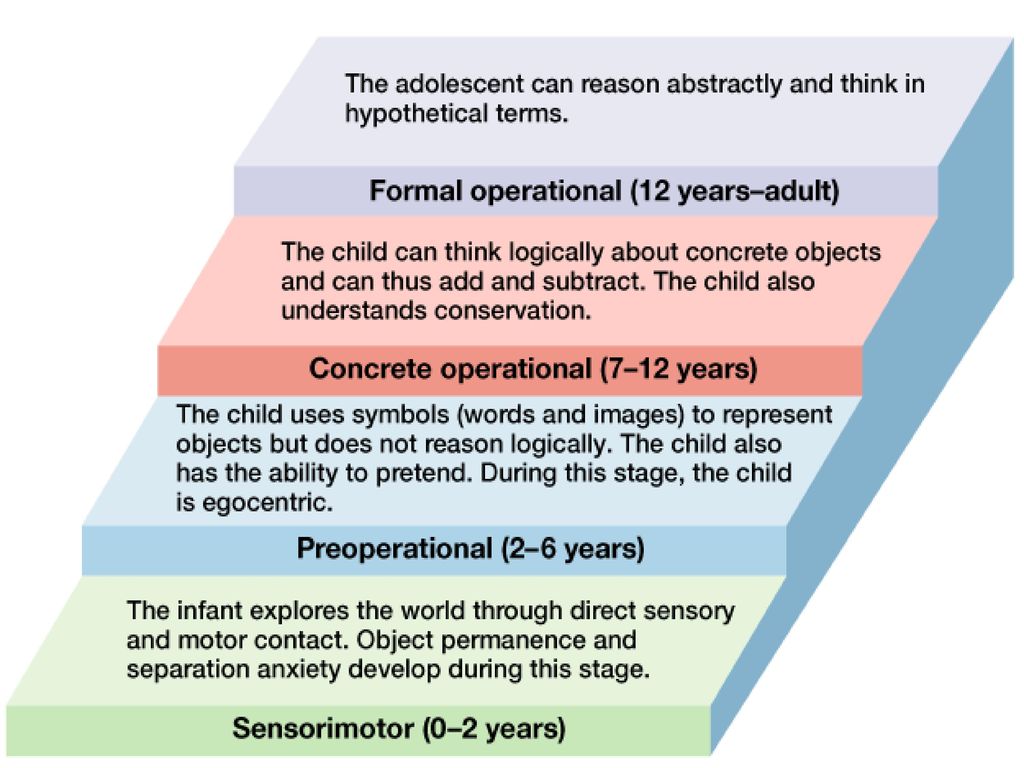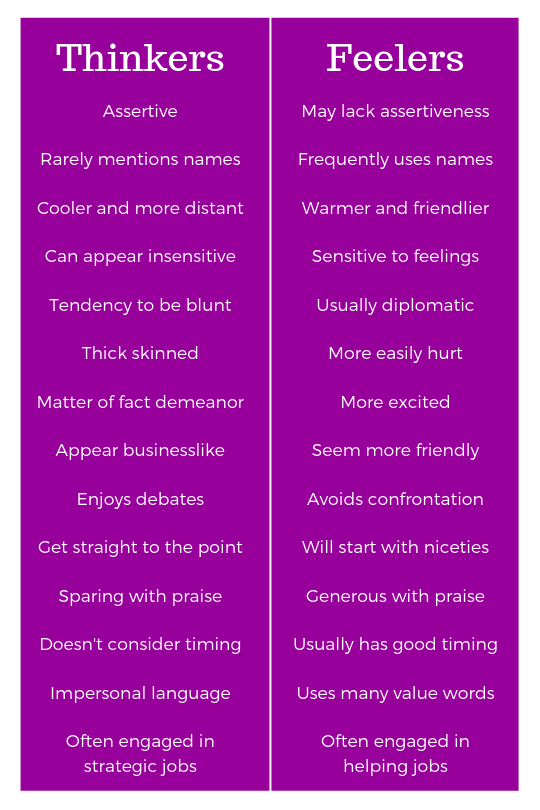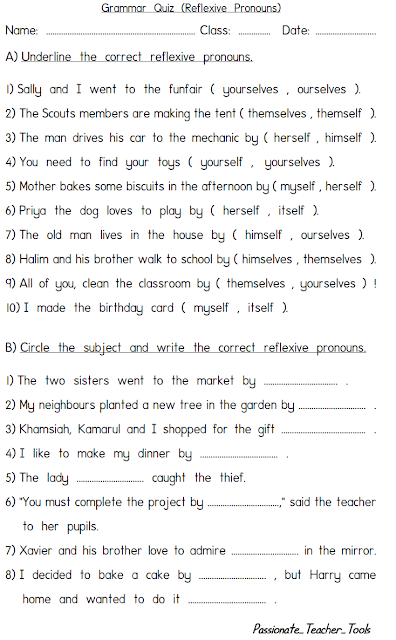Not close to my mother
5 Things That Women Who Aren't Close To Their Moms Will Understand
For many women, having a distant or conflictual relationship with their mother, or no relationship at all, feels like a dirty secret. It seems like every other woman on social media is best friends with her mother, who is a supportive and loving grandmother to boot. You feel alone and lonely when your friends casually mention how great it is when their mom comes over, and how she helps them emotionally (and instrumentally) in so many ways. In day to day life, there are so many instances and situations that trigger feelings of loss, grief, anger, and sadness in women who don’t have close maternal relationships. There are many reasons that women have difficult relationships with their mothers; often there is a sense of betrayal about how the mother acted in the woman’s childhood, i.e., not providing emotional or physical care in some key way. No matter why your relationship with your mother is hard, here are five of the most common things that women who aren’t close to their moms will understand.
- You don’t have a role-model when you become a mother. While women who aren’t close to their mothers may find their mothers impressive in some (or many) aspects (e.g., careers, ability to charm others, intellect), they cannot look up to their moms in the most important way: learning how to be a mother yourself. If you feel that your mother was unable or unwilling to connect to you, then you are likely not going to want to emulate her once you become a mother yourself. It cannot be overestimated how difficult it is to parent children in the absence of an “automatic default” role model (read this for more). When other women can think, “what would Mom do?” you think, “what would Mom do? Don’t do it. But now what?”
- You feel sadness or anxiety about “good” major events. Milestone events that other people look forward to, like your own wedding, the birth of a child, a child’s graduation, or holidays, feel fraught with anxiety and/or sadness.
 If you will see your mother there and there will be conflict or tension, then you are anxious about that, and often resentful that your joy about good things has to be muddied by your feelings toward your mother. If your mother is not a part of your life anymore, these big events are often occasions where you miss her more, or oftentimes mourn the absence of the mother that you wish that you had, who would be happy and supportive at these events.
If you will see your mother there and there will be conflict or tension, then you are anxious about that, and often resentful that your joy about good things has to be muddied by your feelings toward your mother. If your mother is not a part of your life anymore, these big events are often occasions where you miss her more, or oftentimes mourn the absence of the mother that you wish that you had, who would be happy and supportive at these events. - You sometimes become newly hurt even when you think you have become inured to the lack of closeness. Even when you think that you have lowered your expectations of your mother-daughter relationship enough, there are some situations where you become newly shocked or hurt by your mother’s behavior. If you are going through a hard time, such as a divorce, financial crisis, or an illness, you may on some level hope that now, finally, it will be your mother’s chance to shine and to show her true colors as a supportive parent.
 Unfortunately, it usually becomes evident that these events do give your mom a chance to show her true colors, and they were the same unsupportive colors as before.
Unfortunately, it usually becomes evident that these events do give your mom a chance to show her true colors, and they were the same unsupportive colors as before. - You find it embarrassing or difficult to discuss the topic of your mother with others. Even if you’ve mostly gotten to a place where you accept that she is who she is and your relationship is what it is, is can be deeply embarrassing and uncomfortable to discuss your mom with other people. This is amplified greatly if you know (or think) that they have a close relationship with their own mom. You may be 45 years old and your mother 75, but when other women mention spending time with their mothers, or you compare your family of origin to theirs, you may still feel like the same sad and embarrassed child that you were 40 years before.
- You are terrified of ending up like your mother. If your mother never said “I love you,” you may say it to your children ten times a day, and still worry that you aren’t being loving enough.
 When you see yourself replicate any of your mother’s behaviors, or use her expressions or intonations, you feel disgust or anger. You may read book after book on parenting in order to not parent the way she did, but you rarely feel confident in yourself. Your similarities with your mother are a source of anguish, rather than a positive thing, as it is for those of your friends with close maternal relationships.
When you see yourself replicate any of your mother’s behaviors, or use her expressions or intonations, you feel disgust or anger. You may read book after book on parenting in order to not parent the way she did, but you rarely feel confident in yourself. Your similarities with your mother are a source of anguish, rather than a positive thing, as it is for those of your friends with close maternal relationships.
These and other issues create a great deal of sadness and contribute to depression and anxiety. But there are many ways to proactively cope with your feelings about your mother and work on yourself. I’ve found many great books that tackle the topic of difficult mother/adult daughter (or mother/ adult child) relationships, including Mean Mothers, Running on Empty, and When You And Your Mother Can’t Be Friends. Working with a therapist can also help you process your feelings about your relationship with your mom, and learn how to “reparent” yourself so that you can feel whole and secure in the absence of this critical bond.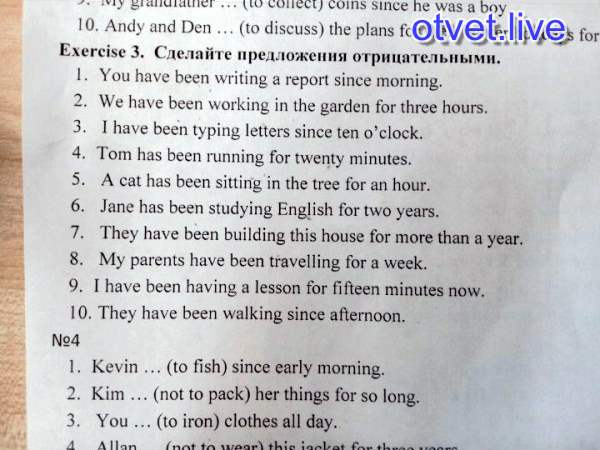 And till we meet again, I remain, The Blogapist Who Says, Don’t Forget That You Can Grow Into Your Own Role Model… And Become One For Your Own Children Too.
And till we meet again, I remain, The Blogapist Who Says, Don’t Forget That You Can Grow Into Your Own Role Model… And Become One For Your Own Children Too.
For therapy, go here for Dr. Whiten and go here for other clinicians in her group practice Best Life Behavioral Health. For coaching with Dr. Whiten, go here. Order Dr. Whiten’s books, 52 Emails to Transform Your Marriage and How to Talk to Your Kids about Your Divorce: Healthy, Effective Communication Techniques for Your Changing Family, and listen to The Dr. Psych Mom Show on Spotify, Apple Podcasts, or anywhere else you listen to podcasts.
This blog is not intended as medical advice or diagnosis and should in no way replace consultation with a medical professional. If you try this advice and it does not work for you, you cannot sue me. This is only my opinion, based on my background, training, and experience as a therapist and person.
Facebook Comments
15 Reasons Kids Might Not Feel Close to Their Parents and Why They Shouldn’t Blame Themselves / Bright Side
Even though we know that a lot of problems come from our childhood, we still rarely talk about the relationships between parents and children.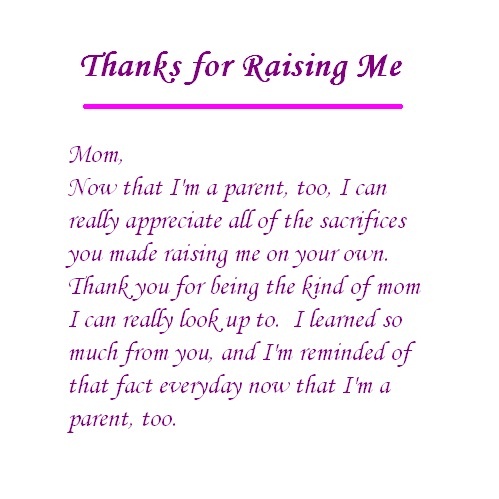 We say things like, “Well, she’s my mom,” “They’ve done everything for me — I should be thankful.” We don’t often talk about negative feelings toward our parents. However, the things they sometimes do may make some people feel really anxious, even when they grow up.
We say things like, “Well, she’s my mom,” “They’ve done everything for me — I should be thankful.” We don’t often talk about negative feelings toward our parents. However, the things they sometimes do may make some people feel really anxious, even when they grow up.
We at Bright Side agree with the opinions of psychologists that people don’t have to feel close to their relatives, even if it’s their mom and dad. Today, we have a compilation of 15 glaring examples of what toxic behavior in a family may lead to.
1.
Some parents start criticizing their children every time they feel angry, disappointed, or simply tired. This helps them express their negative emotions and hide their own vulnerabilities. In any words and actions from their children, these mothers and fathers will always find something offensive or negative. Over the years, this behavior from parents doesn’t disappear and can actually get worse, and children grow up and don’t want to do anything good for their relatives.
2.
There are parents that think that if their children are well-fed, and have good clothes, they are great parents. Unavailable and cold, they might be in their children’s lives physically, but not emotionally. Growing up, children feel that they have a duty to their parents: to help them financially, to find a doctor, etc. But these parents shouldn’t expect warmth and attention from their kids.
3.
Narcissistic parents play a bigger role in a child’s life. They are very attentive to how their children study, which classes they take, and what they are successful at. These moms and dads feed their own egos with their children’s successes. But at the same time, they fail to see a unique and autonomous personality. Any mistake, any bad grade, or any failure at an athletic competition are the reason for an argument. Children feel that they are under pressure and think that they are not good enough. When these kids grow up, they try to put as much distance between them and their relatives in order to not repeat being under this amount of pressure.
4.
Emotionally neglectful mothers and fathers don’t reject their children completely, but they don’t give them a lot of attention. When these parents become older, they realize that for some reason, their children don’t show them enough love, care, and respect. But there’s nothing surprising about that.
5.
When parents mock their children’s interests, children feel ashamed and this can go on for their entire lives. To protect themselves from that, children may start to do the same in response: mock their relatives’ tastes, and not value their feelings and successes enough.
6.
Older parents often resort to a popular manipulation, “We did everything for you and you are so ungrateful now!” They know that they have a lot of power over their children and they try to keep it, even after their kids start living separately. Moms and dads can press, blackmail, and even make their children choose between them and other loved ones. In these situations, any choice feels like a betrayal.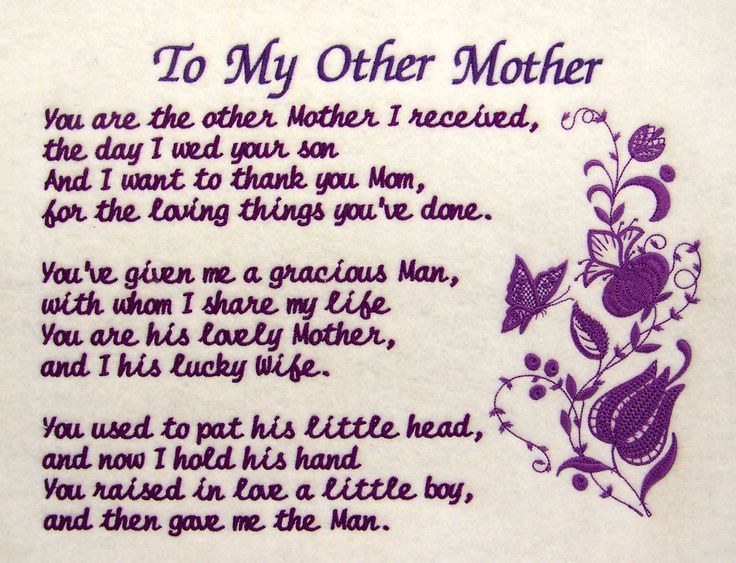 The wisest decision would be to not fall prey to these manipulations but to learn to fight for your own rights, remaining grateful for everything your parents have done for you.
The wisest decision would be to not fall prey to these manipulations but to learn to fight for your own rights, remaining grateful for everything your parents have done for you.
7.
There’s nothing wrong with moms and dads being ambitious about their children. But it’s bad when this becomes an obsession. All the constant conversations about getting married and having children don’t make relationships between relatives any closer or better. The parents that do this shouldn’t be very surprised when their children stop communicating with them.
8.
Psychological support from parents is just as important for children as breastmilk is for babies. A psychological trauma inflicted by a relative won’t go away on its own. Some people give up, others become shy and scared of serious relationships. Others want to prove something to their relatives and achieve great successes. But still, these people feel abandoned.
9.
Trusting a secret to an adult is a big step for a child.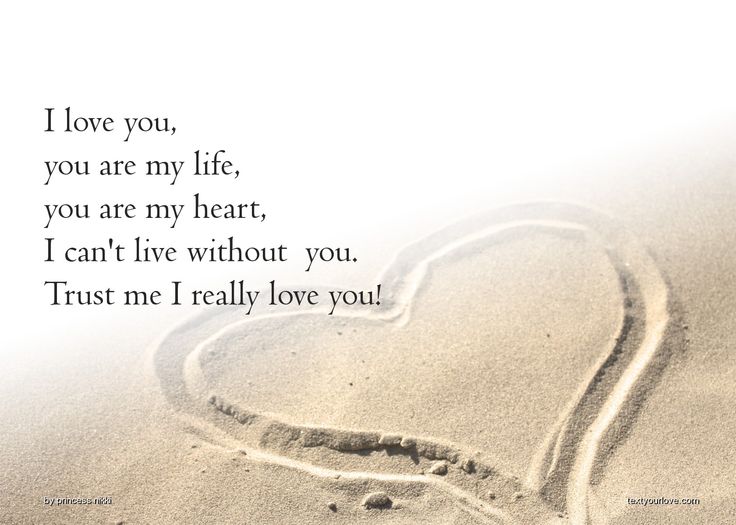 This is both a test of authority and a way to support friendship. But if a parent laughs or gets angry instead of keeping the secret, and then also tells everyone about it, the trust in this family will be lost forever. Very often it makes children not want to tell their parents about anything at all.
This is both a test of authority and a way to support friendship. But if a parent laughs or gets angry instead of keeping the secret, and then also tells everyone about it, the trust in this family will be lost forever. Very often it makes children not want to tell their parents about anything at all.
- I stopped trusting my mother at the age of 7 when I told her I liked a boy in my class and by the next morning, all of my relatives knew about it... I know it’s not that serious, but this story put an end to my trust. Now, my mom is always complaining that I’m very secretive and that I haven’t told her anything in 21 years! And when I tell her the reason why I don’t share anything with her, she doesn’t believe me! © nfh454410 / Pikabu
10.
“Why are you crying like a baby?” “Look! Everyone is looking and laughing at you!” “You’re not beautiful when you’re crying, stop it now!” — many parents are convinced that shaming their children for crying is the only way to stop them from crying. But the only thing this reaction can lead to is making children reserved and shy. Crying when you are hurt is normal. Kids need to be able to deal with unpleasant emotions.
But the only thing this reaction can lead to is making children reserved and shy. Crying when you are hurt is normal. Kids need to be able to deal with unpleasant emotions.
11.
Parents who are obsessed with power think that they have a right to know what profession their children should choose, who they should date and marry, and what job they should choose. And they don’t care that their kids are not babies anymore, or that they are adults that can make their own decisions. The control is irrational. And the parents’ argument is, “Because I said so.” The children that remain under their parents’ control have a very hard time later. They not only have this anger in their souls, but they also learn to adapt to other people’s wishes, believing that someone else’s needs are more important than their own.
12.
This is a very frequent situation in a family where one of the children is loved more. For example, the older child is supposed to perform the duties of a parent, and he or she is told off for every little thing, whereas the younger child gets away with everything. And the older child may be required to set an example for the younger child. If parents don’t notice this problem, it makes the conflict between the siblings very serious.
And the older child may be required to set an example for the younger child. If parents don’t notice this problem, it makes the conflict between the siblings very serious.
- I remember I was 9 in 1996. I’m the oldest child. Someone on TV said that younger children are loved more. My dad says to my mom, “Well, it’s true, isn’t it?! I wonder why this is...” My mom agreed. Wow, that hurt. © NAZAROVV74 / Pikabu
13.
Some parents think that it’s harmful to praise their children. So, they are very harsh with their kids. Parents set standards that children are not able to reach and then they are surprised when their kids grow up to be very shy.
14.
Manipulative parents are incredibly good at making children feel guilty for their unfulfilled goals. They often say something like, “If it hadn’t been for you, my life would have been very different.” These words are very painful to hear. To be able to fight the feeling of guilt, you need to draw the line and not let yourself be manipulated.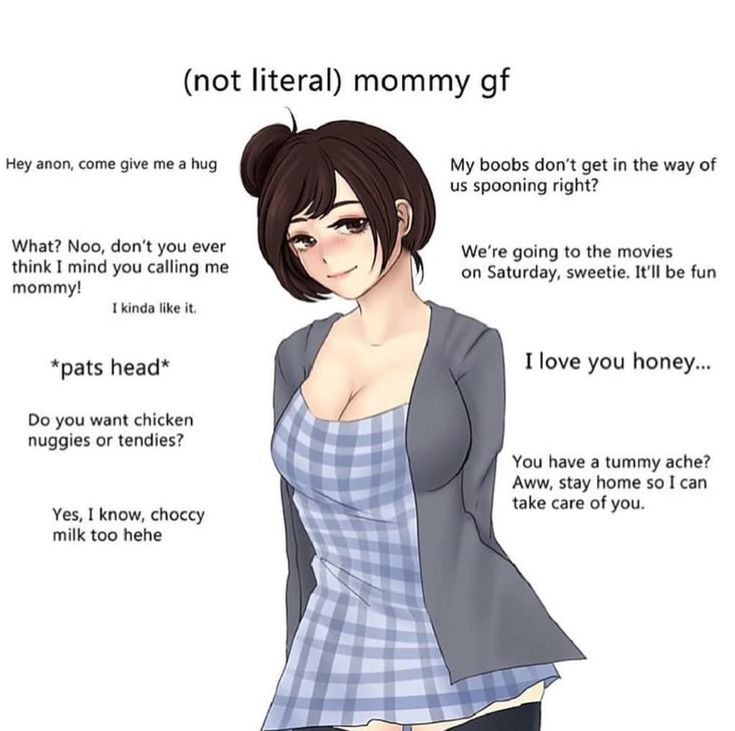 It’s not the child’s decision to be born.
It’s not the child’s decision to be born.
15.
“What will people say?” “Everyone knows me in this town. How am I supposed to look at them?” — this is what really selfish people say, who care more about approval than about how their kids feel. They want to be so perfect that they don’t have time for anything else. Do you think people want to carry on a good relationship with parents that don’t accept them? The answer is obvious.
Have you ever had any situations that undermined your relationship with your parents? What things would you never say to your children?
Bright Side/Psychology/15 Reasons Kids Might Not Feel Close to Their Parents and Why They Shouldn’t Blame Themselves
Are we obligated to love our mother?
363 858
Get to know yourself A man among people
“I remember my mother and I went to my former room, where I lived as a teenager,” recalls 32-year-old Lera. She sat on the bed, crying and could not stop. The death of her mother, my grandmother, just seemed to crush her - she was inconsolable. But I didn’t understand why she was so killed: our grandmother was a real catty. Relations with which, by the way, cost her daughter more than seven years of psychotherapy. nine0003
The death of her mother, my grandmother, just seemed to crush her - she was inconsolable. But I didn’t understand why she was so killed: our grandmother was a real catty. Relations with which, by the way, cost her daughter more than seven years of psychotherapy. nine0003
As a result, my mother succeeded in everything: to improve her personal life, create a happy family, and even establish a reasonable relationship with her grandmother. At least I thought so. When I asked: “Why are you crying?”, She replied: “Now I will never have a good mother.” So, despite everything, she kept hoping? When my grandmother was alive, my mother said that she did not love her - so, it turns out that she was lying?
Relationships with one's own mother - at the slightest approach to this topic, social networks begin to “storm”. Why? What makes this bond so unique that under no circumstances can it truly be broken? Does this mean that we, daughters and sons, are forever doomed to love the one who once gave us life? nine0003
Social commitment
"I don't love my mother. " Very few people are able to utter such words. It is unbearably painful, and the internal ban on such feelings is too strong. “Outwardly, everything is fine with us,” says 37-year-old Nadezhda. “Let’s just say: I try to communicate correctly, not to react internally, not to take anything too close to my heart.” Artyom, 38, carefully chooses his expressions, admits that he maintains a “good” relationship with his mother, “although not particularly close.” nine0003
" Very few people are able to utter such words. It is unbearably painful, and the internal ban on such feelings is too strong. “Outwardly, everything is fine with us,” says 37-year-old Nadezhda. “Let’s just say: I try to communicate correctly, not to react internally, not to take anything too close to my heart.” Artyom, 38, carefully chooses his expressions, admits that he maintains a “good” relationship with his mother, “although not particularly close.” nine0003
“In our public consciousness, one of the most widespread myths is about endless, selfless and bright love between mother and child,” explains psychotherapist Yekaterina Mikhailova. - There is competition between siblings; there is something in the love of a man and a woman that can darken it. And the affection of mother and child is the only feeling that, as they say, does not change over the years.
No wonder the proverb says: "No one will love you like a mother"
“The mother remains sacred,” agrees sociologist Christine Castaine-Meunier. “Today, when traditional family cells are disintegrating, all sorts of roles, from parental to sexual, are shifting, familiar landmarks are being lost, we are trying to cling to something stable that has stood the test of time. That is why the traditional image of the mother becomes unshakable as never before.” The mere doubt of its authenticity is unbearable.
“Today, when traditional family cells are disintegrating, all sorts of roles, from parental to sexual, are shifting, familiar landmarks are being lost, we are trying to cling to something stable that has stood the test of time. That is why the traditional image of the mother becomes unshakable as never before.” The mere doubt of its authenticity is unbearable.
“The very thought “I have a bad mother” can destroy a person,” says Ekaterina Mikhailova. - It is no coincidence that in fairy tales the evil witch is always the stepmother. This not only speaks to how difficult it is to accept your negative feelings towards your own mother, but also how common such feelings are." nine0003
Initial fusion
Our relationship is dual, contradictory. “The degree of closeness that initially exists between mother and child excludes the existence of a comfortable relationship,” says Ekaterina Mikhailova. - First, a complete merger: we were all born under the beating of the heart of our mother.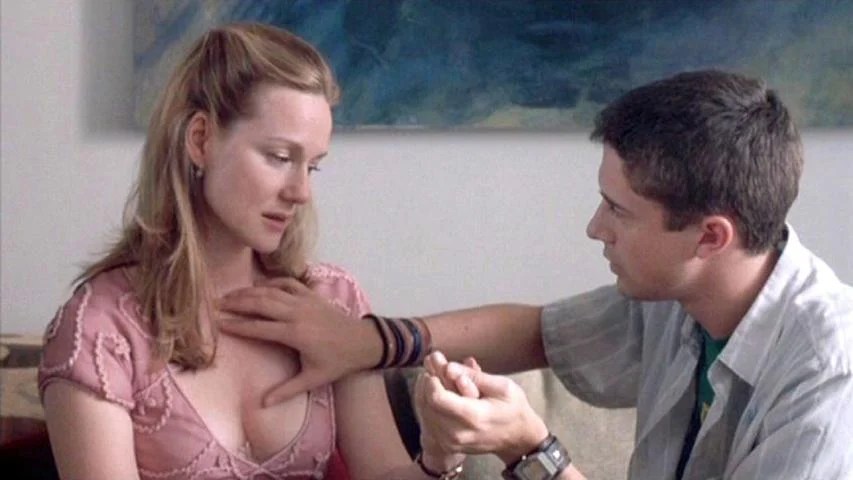 Later, for the baby, she becomes an ideal omnipotent being, able to satisfy all his needs and needs.
Later, for the baby, she becomes an ideal omnipotent being, able to satisfy all his needs and needs.
The moment when a child realizes that his mother is not perfect becomes a shock for him. And the less it satisfies the true needs of the child, the harder the blow: sometimes it can give rise to deep resentment, which then develops into hatred. We all know moments of bitter childhood anger, when the mother did not fulfill our desires, greatly disappointed or offended us. Perhaps you can say that they are inevitable. nine0003
“These moments of hostility are part of a child's development,” explains psychoanalyst Alain Braconnier. - If they are single, then everything goes fine. But if hostile feelings torment us for a long time, it becomes an internal problem. More often this happens with children whose mothers are too busy with themselves, prone to depression, overly demanding, or, conversely, always keep aloof.
Mother and child seem to merge into one, and the strength of emotions in their relationship is directly proportional to the intensity of this merger
It is even more difficult for single children or those who grew up in an incomplete family to admit to themselves hostile feelings towards their own mother.
“For as long as I can remember, I have always been the main reason for her life,” says 33-year-old Roman. - This is probably a great happiness, which is not given to everyone, but also a heavy burden. For example, for a long time I did not manage to get to know someone, to start a personal life. She couldn't share me with anyone!" Today, his connection with his mother is still very strong: “I don’t want to go far from her, I found myself an apartment very close, two stops ... Although I understand that such a relationship deprives me of real freedom.” nine0003
Almost none of the adults and even very unhappy children actually dare to burn all the bridges. They deny that they are angry with their mother, they try to understand her, they find excuses: she herself had a difficult childhood, a difficult fate, her life did not work out. Everyone tries to behave “as if”… As if everything was fine and the heart would not hurt so much.
The main thing is not to talk about it, otherwise the avalanche of pain will sweep away everything and “carry it beyond the point of no return”, as Roman figuratively puts it. Adult children support this connection by all means. “I call her out of a sense of duty,” admits 29year old Anna. “Because in her heart she loves me, and I don’t want to upset her.”
Adult children support this connection by all means. “I call her out of a sense of duty,” admits 29year old Anna. “Because in her heart she loves me, and I don’t want to upset her.”
Indebted from birth
Psychoanalysis speaks of "original debt" and its consequence - that feeling of guilt that binds us for life to the woman to whom we owe our birth. And whatever our feelings are, in the very depths of our souls there is still a hope that someday things can still get better somehow. “In my mind, I understand that you can’t change my mother anymore,” sighs 43-year-old Vera. “Still, I can’t accept the fact that nothing will ever change between us.” nine0003
“I lost my first child in childbirth,” recalls 56-year-old Maria. - Then I thought that at least this time my mother would at least show sympathy. But no, she did not think that the death of a child was a sufficient reason for grief: after all, I had not even seen him! Since then, I have literally lost sleep. And this nightmare continued for years - until the day when, in a conversation with a psychotherapist, I suddenly realized that I did not love my mother.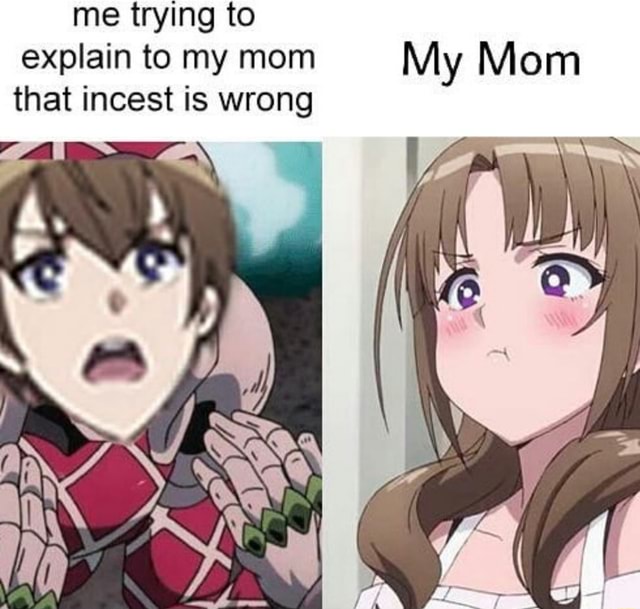 And I felt that I have a right to it.”
And I felt that I have a right to it.”
We have the right not to experience this love, but we do not dare to use it
“We have a long-standing childhood insatiable longing for a good parent, a thirst for tenderness and unconditional love,” says Ekaterina Mikhailova. “It seems to us all, without exception, that we were not loved the way we should have been. I don’t think any child had exactly the kind of mother they needed.”
It is even more difficult for someone whose relationship with his mother was difficult. “In our understanding of her, there is no separation between the almighty maternal figure, familiar to us from infancy, and a real person,” continues Ekaterina Mikhailova. “This image does not change over time: it contains both the depth of childish despair, when the mother is delayed, and we think that she is lost and will not come again, and later ambivalent feelings.” nine0003
Only a “good enough” mother helps us move towards adult independence. Such a mother, satisfying the urgent needs of the child, makes him understand that life is worth living. She, without rushing to fulfill his slightest desire, gives another lesson: in order to live well, you need to gain independence.
Such a mother, satisfying the urgent needs of the child, makes him understand that life is worth living. She, without rushing to fulfill his slightest desire, gives another lesson: in order to live well, you need to gain independence.
Fear of becoming the same
Having entered into motherhood in their turn, Vera and Maria did not object to the communication of their mothers with their grandchildren, hoping that their "bad" mothers would at least become "good" grandmothers. Before the birth of her first child, Vera found an amateur film made by her father during her childhood. A laughing young woman with a little girl in her arms looked at her from the screen. nine0003
“My heart warmed,” she recalls. - In fact, our relationship deteriorated when I became a teenager, but before that, my mother seemed to be glad that I was in the world. I am sure that I was able to become a good mother to my two sons only because of these first years of my life. But when I see how she gets annoyed with my children today, everything turns upside down in me - I immediately remember what she has become.
Maria, like Vera, took her mother as an anti-model for building relationships with her children. And it worked: “One day, at the end of a long phone conversation, my daughter said to me: “It’s so nice, Mom, to talk to you.” I hung up the phone and cried. I was happy that I managed to build a wonderful relationship with my children, and at the same time I was choked with bitterness: after all, I myself did not get such. nine0003
The initial lack of maternal love in the lives of these women was partially made up by others — those who were able to convey to them the desire to have a child, helped them understand how to educate, love and accept his love. Thanks to such people, good mothers can grow up from girls with a “disliked” childhood.
In search of indifference
When relationships are too painful, the right distance in them becomes vital. And suffering adult children seek only one thing - indifference. “But this protection is very fragile: the slightest step, a gesture from the mother is enough, as everything collapses, and the person is injured again,” says Ekaterina Mikhailova.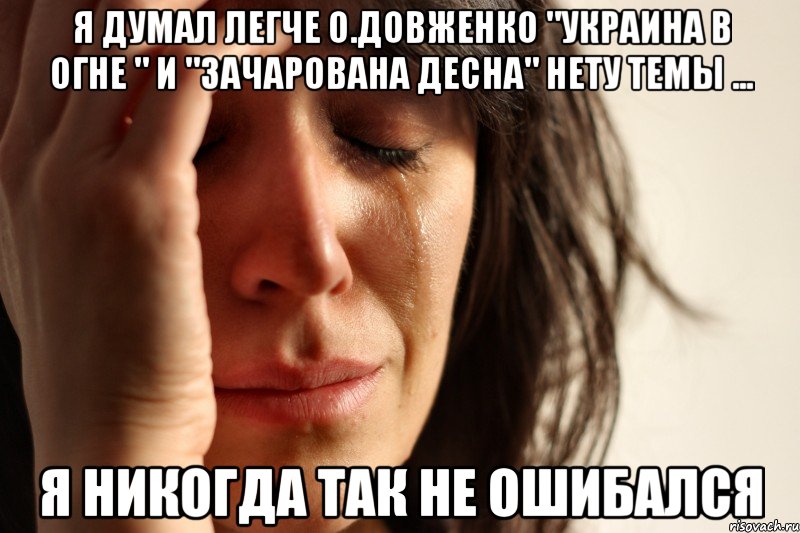 Everyone dreams of finding such spiritual protection ... and admits that they cannot find it. nine0003
Everyone dreams of finding such spiritual protection ... and admits that they cannot find it. nine0003
“I tried to completely “disconnect” from her, I moved to another city,” says Anna. “But as soon as I hear her voice in the receiver, it’s as if it pierces through me with an electric current ... No, it’s unlikely that even now I don’t care.” Maria chose a different strategy: “It’s easier for me to maintain some kind of formal connection than to break it completely: I see my mother, but very rarely.” To allow ourselves not to love the one who raised us, and at the same time not to suffer too much, is incredibly difficult. But probably.
“This is an indifference that comes from suffering,” says Ekaterina Mikhailova. - It comes if the soul manages to survive that long-standing lack of warmth, love and care, it comes from our pacified hatred. Childhood pain will not go away, but it will be easier for us to go our own way if we try to sort out feelings and separate guilt from them. Growing up is what it means to be freed from what fetters freedom. But growing up is a very long way. nine0003
Growing up is what it means to be freed from what fetters freedom. But growing up is a very long way. nine0003
Change relationships
Allow yourself not to love your mother... Will this make it easier? No, Ekaterina Mikhailova is sure. It doesn't get any easier than this honesty. But the relationship will definitely get better.
“Changing the style of your relationship with your mother will make it less painful. But, just as in tango two people must move in the opposite direction, so the consent to change is required both from the mother and from the adult child. The first step is always for the child. Try to break down your conflicting feelings for your mother into components. When did these emotions appear - today or in deep childhood? Perhaps some of the claims have already expired. nine0003
Look at your mother from an unexpected angle, imagine how she would have lived if you had not been born to her. When starting to build a new relationship, it is important to understand how sad it is: to walk away from a fatal and unique connection, to die for each other as a parent and child.
Having broken off a difficult relationship, mother and child will stop poisoning each other's life and expect the impossible, they will be able to assess each other more coldly, soberly. Their interaction will be similar to friendship, cooperation. They will begin to appreciate the time allotted to them more, learn to negotiate, joke, manage their feelings. In a word, they will learn to live ... with the fact that it is still impossible to overcome. nine0003
Quotes from our readers
Many of them were able to say for the first time: “Mom didn't love me” by writing comments on the site. The anonymity of Internet communication and the support of other users help to emotionally detach from relationships that can consume our lives.
“If she read me a children's book (which happened rarely), then the name of a bad character (Tanya-revushki, Masha-bewildered, Dirty, etc.) replaced it with mine, and for better understanding she poked a finger at me. Another memory: we go to the neighbor's girl for her birthday, mom has two dolls.
“Which one do you like best? This one? Well, then, we will give it!” According to her, this is how she brought up altruism in me.” (Freken Bock)
***
“My mother talked endlessly about her misadventures, and her life seemed to me a tragedy. I don’t know whether unloving mothers have some kind of special filter to filter out everything positive, or whether this is such a way of manipulation. But they also see their child exclusively negatively: his appearance, and character, and intentions. And the very fact of its existence. (Alex)
***
“I felt better when I was able to admit that my mother didn't love me as a child. I accepted this as a fact of my biography, as if I "allowed" her not to love herself. And she “allowed” herself not to love her. Now I don't feel guilty anymore." (ira)
***
“The lack of my mother's love severely poisoned the beginning of my motherhood. I understood that I should be gentle and affectionate with the child, and I tortured these feelings, at the same time suffering from the fact that I was a “bad mother”.
But he was a burden to me, just as I was a burden to my parents. And then one day (I hope it's not too late) I realized that love can be trained. Pump up like muscle tissue. Daily, hourly, little by little. Do not run past when the child is open and waiting for support, affection or just participation. To catch these moments and force yourself to stop and give him what he needs so much. Through "I don't want, I can't, I'm tired." One small victory, the second, a habit appears, then you feel pleasure and joy. (Wow)
***
“It's hard to believe that your mother really behaved like this. The memories seem so surreal that it's impossible to stop thinking about it: was it REALLY THE WAY it really was? (Nik)
***
“I knew from the age of three that my mother got tired of the noise (that I make) because she had high blood pressure, she did not like children's games, she did not like to hug and say affectionate words. I took it calmly: well, such a character. I loved her the way she was.
If she was annoyed with me, then I whispered the magic phrase to myself: “Because my mother has hypertension.” It even somehow honorably seemed to me that my mother is not like everyone else: she has this mysterious disease with a beautiful name. But when I grew up, she explained to me that she was sick because I was a "bad daughter." And it psychologically just killed me.” (Madame Kolobok)
***
“For several years, together with a psychologist, I learned to feel like a woman, to choose clothes not for reasons of “practical”, “non-marking” (as my mother taught), but according to the principle “I like it”. I learned to listen to myself, understand my desires, talk about my needs ... Now I can communicate with my mother as with a friend, a person of a different circle who cannot hurt me. Perhaps this can be called a success story. The only thing is that I don't really want children. Mom said: "Do not give birth, do not get married, this is hard labor." I am an obedient daughter.
Although now I live with a young man, it means that I left myself a loophole. (Oxo)
Text: Natalia Gridneva, Eleonora Kachanova Photo Source: Getty Images
New on the site
Are you a victim of FOMO? 6 Ways to Overcome the Fear of Missing Out
“Every time a relationship got serious, I left. Why?"
“I regret that I confessed to my husband that I had cheated. How to restore good relations?
Incubi, sacrifice and orgies: what is sexual magic - dive into the story
How to recognize a womanizer: 10 signs - check your partner
New Year's aggravation: why do we get sad before the holidays
“For 15 years I have not found a girlfriend on dating sites”
Joint birth: harm or benefit for relationships?
Katerina Murashova: All about my mother
Many of my colleagues during the isolation period wrote that this is a very appropriate and good time to thoughtfully walk around the Tretyakov Gallery with an online tour or finally read Kafka.
I resolutely refrained from such advice simply because my many years of observation of human nature (and of myself, among others) unambiguously suggested: those who cannot imagine themselves without regular excursions to art museums will visit them online during isolation without any prompts, and those who have not read Kafka in the previous 40 years are unlikely to rush to his books in a period of epidemic and personal and social uncertainty. nine0003
However, something (or someone) closer to Kafka and the Tretyakov Gallery can by chance and get to know better, I thought and invited 50 families to write spring-summer compositions.
The topics were very simple: "All about my mother" and "All about my son/daughter". Written by two family members - mother and child. Why not father? I sincerely believe that in modern Russian society, in the end, more depends on how well mother and child know each other than on similar knowledge along the child-father line. Although in recent years the situation is undoubtedly moving towards some balance.
nine0003
The tasks were formulated as follows:
For the child: tell what you know about your mother. You know exactly, but you don’t assume, you don’t guess, you don’t feel in relation to her. Very simple: what do you know. Here right now.
Almost all the children were writing this essay in my office while I was talking to their mothers. To simplify the work of children, I gave some strong points - education, work, hobbies, the social life of the mother, and so on.
Mothers wrote compositions at home and sent them by e-mail. Their task was harder and more ultimatum:
“Just the facts,” I said. - I don’t need to write: “he is kind.” Write: “He always guesses when I have a headache and brings a pill, and he also picked up two abandoned kittens on the street, cured them and has been caring for them for three years.” The only way.
Practically all children - 25 boys and 25 girls from 9 to 16 years old - complied with the instructions.
Two-thirds do not know exactly what their mothers do at work.

Five know the name of the organization where their mother works. nine0003
More than half cannot name a position.
Also, more than half do not know what their mother's education is, and only two named the specific specialty she once received.
The mothers of five are studying right now. Only one said exactly who.
Two wrote: my mother loves her job, she told me herself. Five wrote: my mother does not like her job and works there only because of the money.
Four out of 50 mentioned some actions and facts of the mother’s biography before the birth of the child (“my mother used to go to the mountains”).
Seven people know where and how their mother met their father. Two-thirds accurately described their mother's appearance.
At least one personal practical observation - “my mother is usually silent”, “mother is embarrassed to talk to strangers”, “my mother always organizes everything, both in the family and when we go somewhere with others” - in seven essays.

With a description of mothers' hobbies, except for travel (22 people), "talk to friends" (17, all girls) and "sit on the computer, phone, watch TV" (42 people) - complete seams. Almost no personality traits. 12 children wrote that their mother loves to clean the apartment very much. 17 - that loves to cook. Three in contrast - "hates to cook" (I believed this unconditionally). nine0003
"Apparently my mother's biggest concern is my cooking lessons."
“She is very interested in what my brother and I are wearing – are we cold?”
“My mother loves to examine me with various specialists and then treat me.”
Talking about social life, five named their mother's friends and girlfriends by name.
Eight more wrote “my mother has many friends”.
Three wrote: my mother gets lonely, she herself said.
Seventeen: My mother often fights with my father (stepfather).
Ten: my mother has a good relationship with my father, they don't fight.

The impression is that "they swear - they don't swear" in the vision of children is the only criterion for good or bad relationships.
Five: my mother would like to find a man to help her.
Three: my mother wants to get a divorce, but hasn't decided yet.
One: my mom had four plastic surgeries, but told me and dad about only two. nine0003
One more thing: my mother does charity work. For some reason, without specifying what exactly she does. Does not know?
32 compositions, in one wording or another: “I now realized that I actually know little about the closest person - my mother.” Of course, I internally triumphed, reading this, because this is already the result.
30 out of 50 tried to lean out of the dressing room where they wrote and ask something. Three came to see what color her mother's eyes were.
Of course, many could not refrain from generalizing phrases at the end of their essays such as: “I love my mother very much!”, “My mother is the best!” But who would blame them for this? I'm not sure.
nine0003
Almost all parents did not follow the instructions. The phrase “he is very emotional with me” turned out to be the most common in their writings. I am absolutely not exalted, but when I read it for the 40th time, I had a completely irrational desire, clearly from the psychological arsenal of a bad teacher: take a red pen and cross out, cross out, cross out.
My second anti-favorite is “I have a capable but lazy one”. A definition that, right before my eyes, crippled hundreds, if not thousands, of destinies and ruined hundreds of parent-child relationships. nine0003
Surprisingly, most parents are not even able to clearly and without judgment describe the appearance of their children. Their children do it much better, here is a good example: “My mother is short and plump, dimples on one cheek and elbows, her eyes are large, brown with green flecks, when she laughs - and she laughs very often, her eyes close with round blue for centuries and gums are visible over even teeth.
Mom moves, as if rolling, but very quickly, once - and she is already there, and you didn’t even notice. A wonderful portrait, you must agree. There is nothing even close to similar in any of the parental compositions, as if they did not all study Russian classics at school. nine0003
17 mothers actually rewrote the medical anamnesis into an essay: “I was born prematurely, I had diathesis at one year...” and all that. 33 described in detail and clearly the diagnoses of the child at the moment.
42 mothers (a touching quantitative coincidence) reported that their child's main hobby is his phone. Almost everyone noted one more hobby, for example: he collects Lego, reads books, draws, likes to go out with friends. 26 parents wrote about two more hobbies, 11 about three.
Everyone listed the clubs attended before the coronavirus pandemic, but from this listing it was almost impossible to understand what the child himself was there, and what was parental ambitions or medical recommendations.

At the animal station, my instructions were simply not followed. "Loves animals" - what does it mean? Petting a cat every day? Or has he begged for three aquariums, serves them himself, breeds rare fish there and is a member of the aquarium club? Unfortunately, it was impossible to understand this from the parental writings. nine0003
36 parents honestly wrote that they almost do not know with whom and how their child communicates, although they try to keep track. 29 noted that the child has problems with peers, about which he himself told them. Five mentioned the bullying, none of the essays gave a reason for it.
30 mothers wrote that their child does not seem to have “real friends”, and, in fact, there is no time for them.
Detailed and intelligible, without "emotionality" and "ability, but laziness", a description of the actual nature and personality of the child - "talks a lot", "often greedy", "loses hard", "persistent in achieving goals" (all this - with examples) I met in five essays out of 50.

In 23 essays descriptions turned into complaints: “does not listen to what they say to him”, “does not respect elders” and the like. At 11 - into pointless praise: "very capable", "handsome", "with good taste."
All parents read essays about themselves. To my question: do you recognize yourself here? Have you got the main point? - 11 out of 50 answered positively. For the remaining 39, I recommended, without delay, to tell their child about themselves what they lacked in these reflection portraits.
All the children, by agreement, also read their parents' compositions. A similar question about recognition was answered positively by 36 children. I expected that there would be five or six positive answers and a wave of teenage protest: “No, I’m not like that, I’m more complicated and interesting, you don’t know me and don’t understand me!” But they agreed. With emotionality and laziness, the primacy of the gadget over everything and the absence of real friends. How to go out into the world with such a portrait? nine0003
I'm upset.
And then I thought: maybe it's just tolerance and unwillingness to upset my mother? So I haven't decided yet.
But I am sure that this exercise is simple and useful. And summer is a good time to learn something about yourself and about who is around.
In conclusion, I will quote a passage that touched me personally (Vika, 13 years old):
“My mother has a lot of problems. Her husband left her, her salary is delayed at work, and my grandmother was ill for a long time and died last year. But my mother never loses heart, she says that the world is still beautiful, and loves funny people, she goes to cafes with her friends and takes me and my brother to museums and take a walk. And when the coronavirus hit, my mother and I made a performance, filmed it on video and sent it to all friends and relatives, and even the hamster and the dog had roles in it. And we also baked a huge seven-cake cake, ate it ourselves and took it to all the neighbors. My mom is strong and I want to be like her when I grow up.




